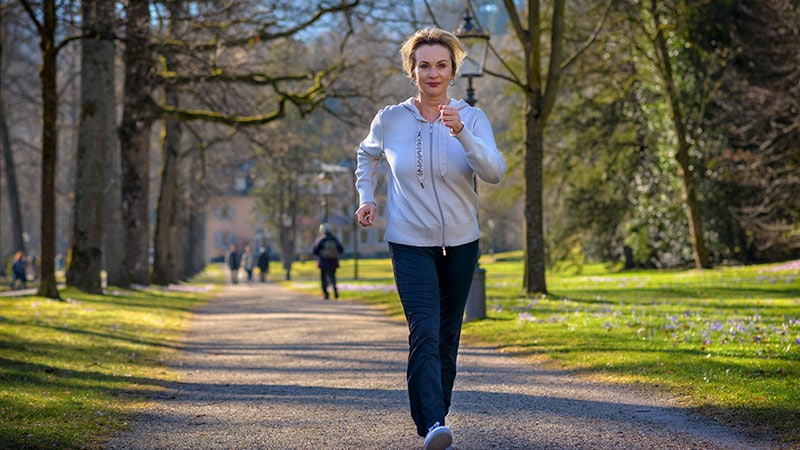Walking is a simple, cost-free form of exercise that benefits physical, social, and mental health in many ways. Several clinical trials have shown that walking regularly is associated with a lower risk for cardiovascular events and all-cause mortality, and having a higher daily step count is linked to a decreased risk for premature death.
In recent years, the link between walking speed and the risk for multiple health problems has sparked keen interest. Data suggest that a faster walking pace may have a greater physiological response and may be associated with more favorable health advantages than a slow walking pace. A previous meta-analysis of eight cohort studies suggested that individuals in the fastest walking-pace category (median = 5.6 km/h) had a 44% lower risk for stroke than those in the slowest walking-pace category (median = 1.6 km/h). The risk for the former decreased by 13% for every 1 km/h increment in baseline walking pace.
Type 2 diabetes (T2D) is one of the most common metabolic diseases in the world. People with this type of diabetes have an increased risk for microvascular and macrovascular complications and a shorter life expectancy. Approximately 537 million adults are estimated to be living with diabetes worldwide, and this number is expected to reach 783 million by 2045.



Fast walkers get the last laugh, after having to walk behind these slow mofos for so long.
Those slow walkers that you’re stuck behind are literally killing you every minute you can’t get around them!
I have to reroute myself everytime I get behind somebody else. It’s like, “Oh shit, they’re gonna think I’m a creep if I follow behind them, I guess I’ll just walk this other shitty route instead.”